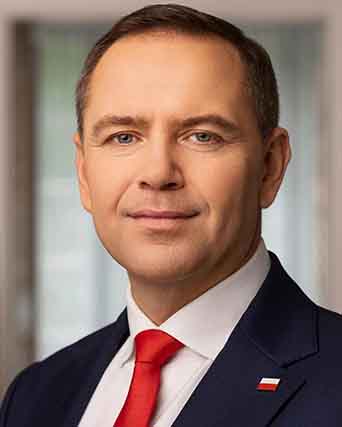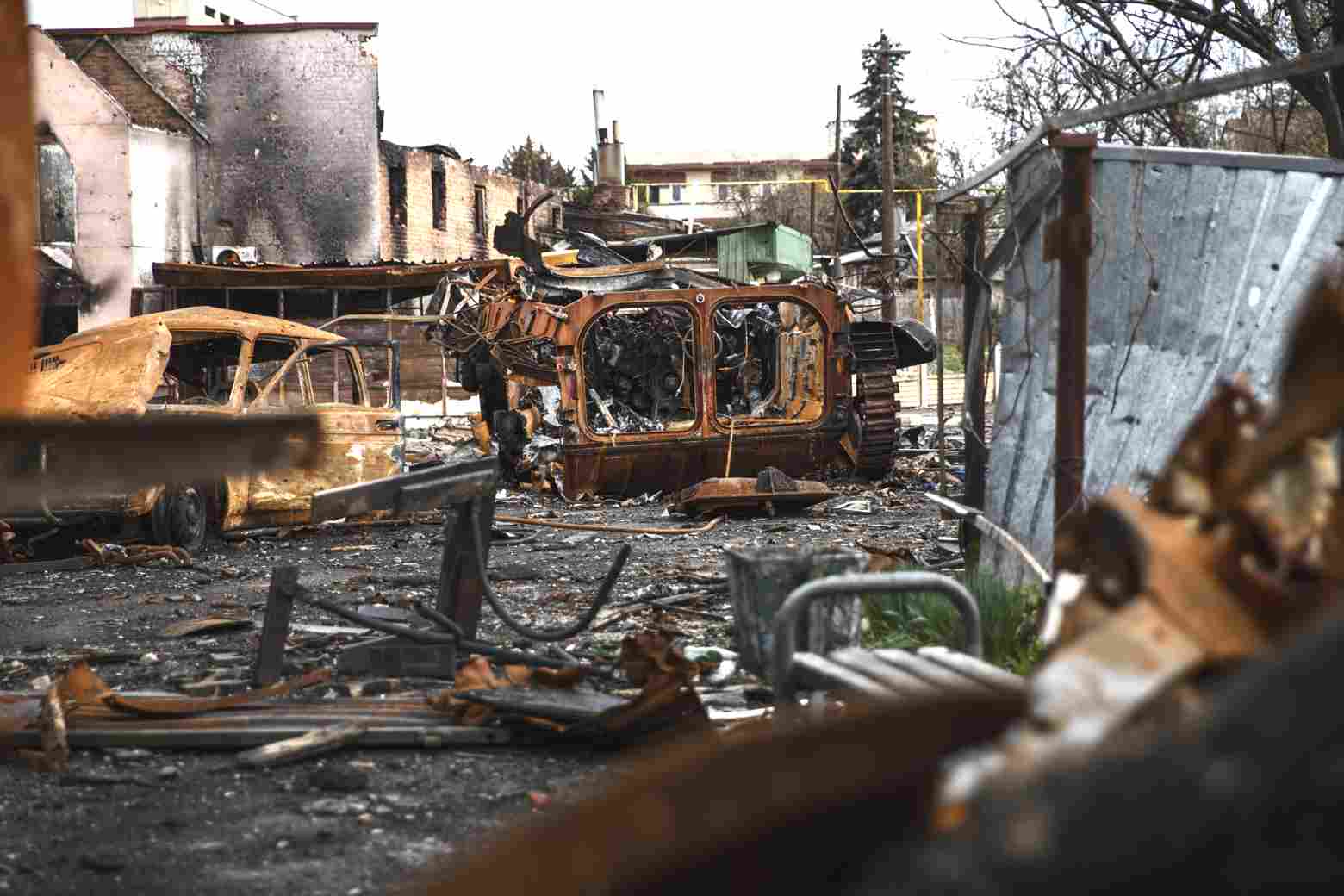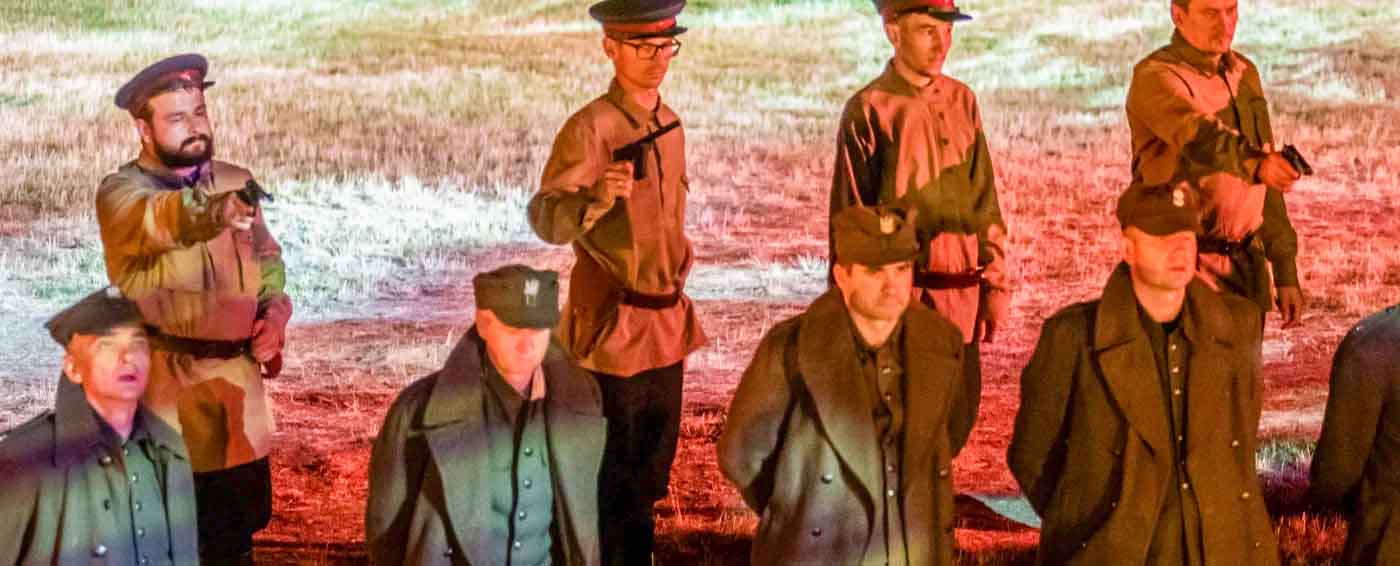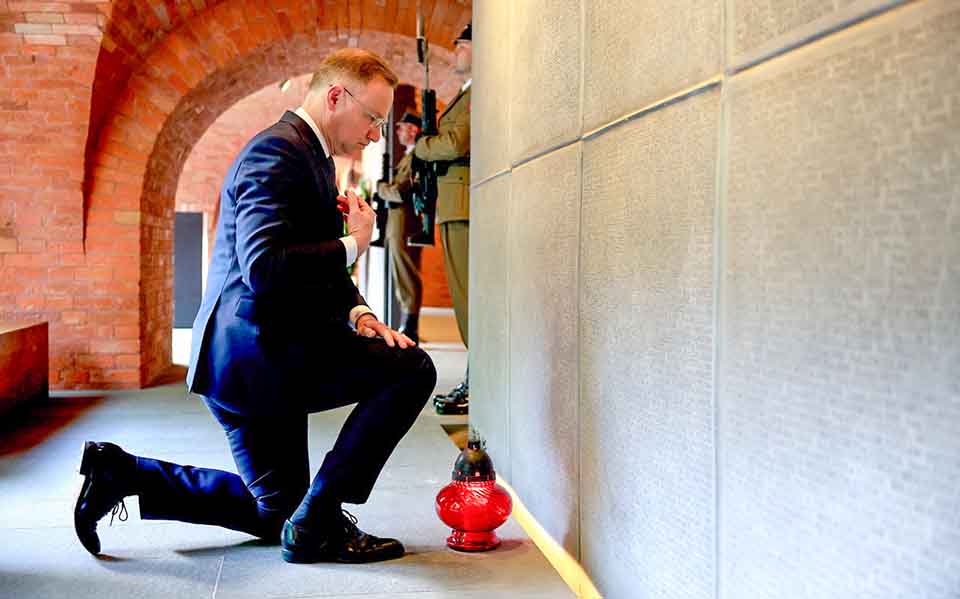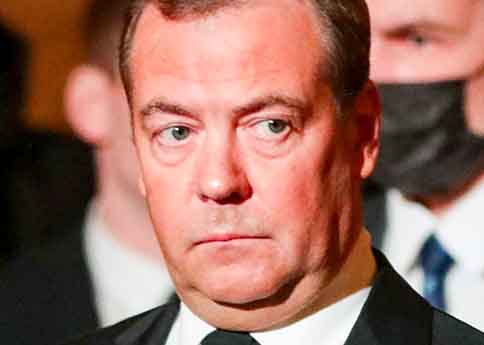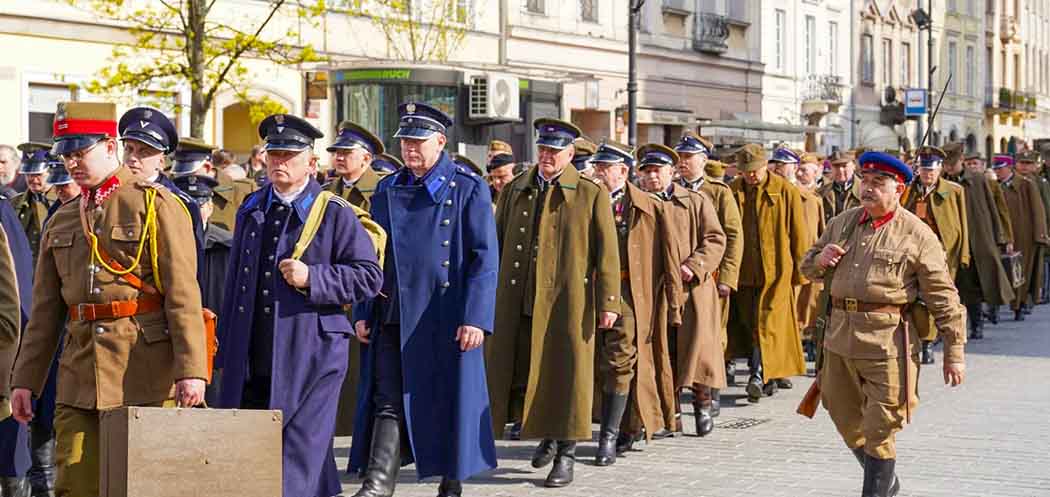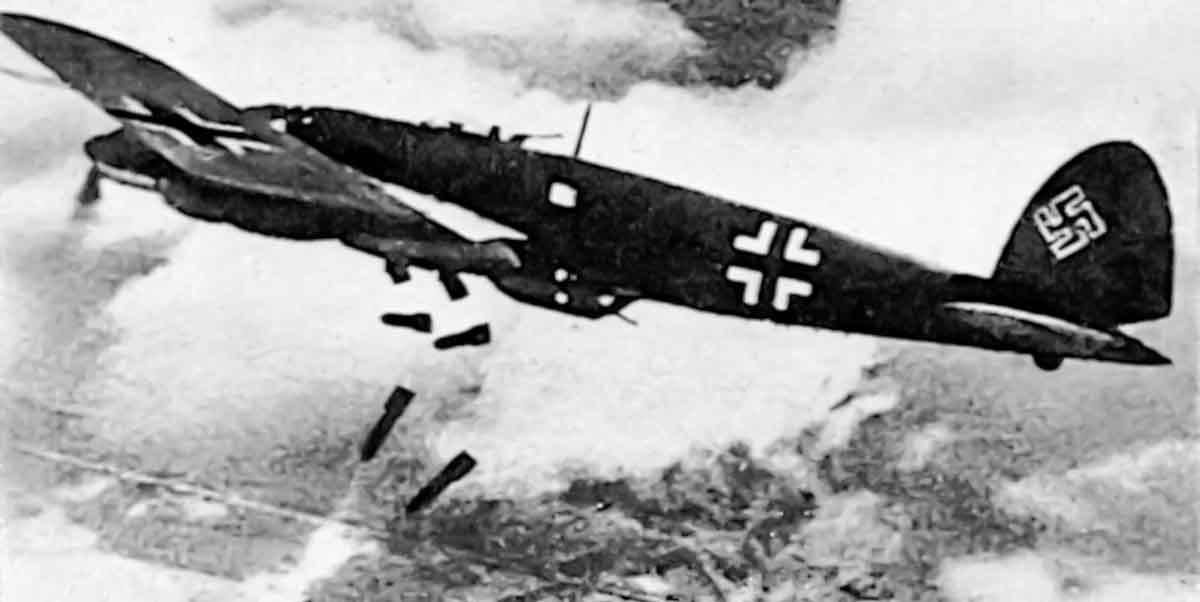A few years ago, when I was visiting the Central Museum of the Great Patriotic War 1941-1945 in Moscow, I looked into the souvenir shop there. In addition to hats with a red star, the offer included, among others: figurines of Vladimir Lenin and Felix Dzerzhinsky. This is the sad truth: the leaders of the bloody Bolshevik revolution and the creators of the genocidal Soviet system are still treated as heroes in Russia, and have also become an element of pop culture.
When the communist system collapsed in Poland in 1989, one of the symbols of change was the toppling of the hated monuments of Lenin and Dzerzhinsky. However, some Soviet propaganda facilities - mainly those erected "in honor of the Red Army" - survived the period of political transformation. In March 2022, right after Russia's full-scale attack on Ukraine, I appealed to the local government authorities to complete the decommunization of Polish public space. The response was great. Of the approximately sixty Soviet propaganda objects that were still disfiguring Polish cities and towns two years ago, more than half have disappeared to this day. From the perspective of the Russian Federation, such actions are dangerous because they attack the myth of Soviet "liberators" and undermine Moscow's "rights" to dominate the lands reached by the soldier with the red star on his cap.
At the Institute of National Remembrance, which I have the honor to head, it is obvious to us that in a free, democratic Poland there is no place for names and symbols commemorating the totalitarian system. However, the authorities of the Russian Federation apparently believe that the now sovereign states of the former Eastern Bloc do not have the right to name their heroes themselves. In recent days, I received information that I was on the list of people wanted by Russia - just like, among others, Prime Minister of Estonia Kaja Kallas and Minister of Culture of Lithuania Simonas Kairys. We are accused of "desecration of historical memory." Because this is what Russia and Putin mean by telling the truth about Soviet enslavement and terror in the countries of Central and Eastern Europe.
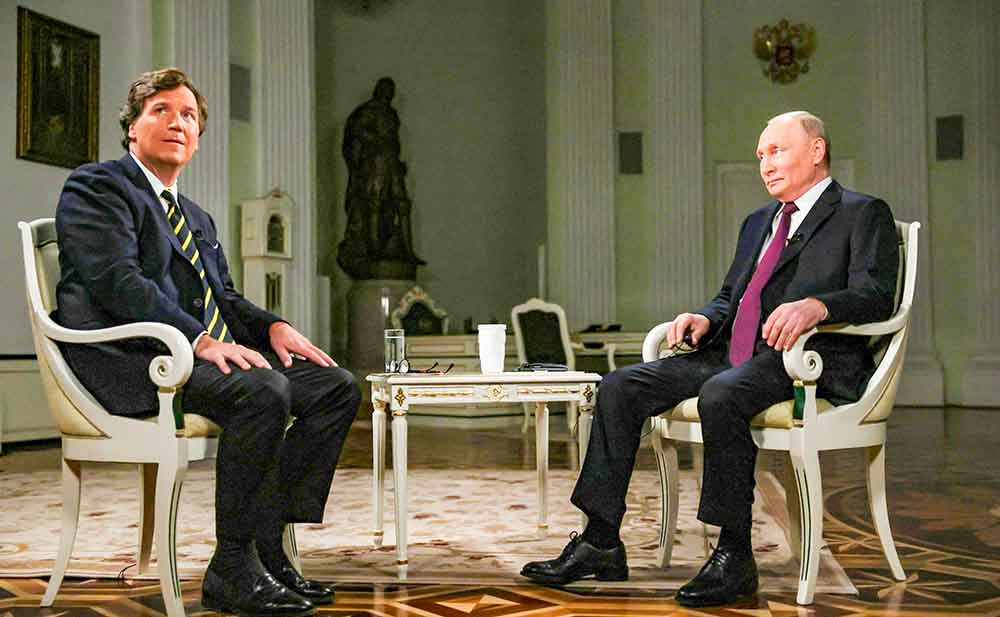
Tucker Carlson talks to Putin on February 9, 2024. Photo. Gavriil Grigorov, Kremlin/Zuma Press/Forum. (Source: DlaPolonii.pl)
Vladimir Putin himself recently gave a lecture on what "proper" historical memory is. In a two-hour interview with Tucker Carlson - an American journalist who only nodded at long passages to the Kremlin's host - the specifically understood past was no less important than the present and was intended to justify today's aggressive policy of the Russian Federation. In his arguments, Putin went back to year 862, but he also devoted a lot of time to modern history. All this to prove the daring thesis that Ukraine is an artificial "Nazi" state, and therefore that the brutal war waged by Russia against the authorities in Kiev and the entire society is justified.
It is no accident that Poland occupies a key place in Putin's attempt to rewrite history. The entire propaganda narrative about "connecting Russian lands" and "liberating" Europe from Nazism requires far-reaching manipulation of Polish history.
The Republic of Poland fell victim to partitions carried out by aggressive neighbors three times: in the 18th century, when the lands of the then Polish-Lithuanian state were divided between Russia, Prussia and Austria; in 1815, when, after the fall of the Napoleonic system, these three powers again divided Polish territories (Warsaw, among others, came under Russian rule); and again in 1939, when Poland was wiped out from the map of Europe side-by-side by the Third German Reich and the Soviet Union. Neither Tsarina Catherine II in the 18th century, nor Joseph Stalin a century and a half later, took back "their historical territories", as Putin would like to make the world believe. Neither Lutsk in 1795, nor Lviv in 1939, returned to the motherland (the latter was under Austrian rule during the partitions). To claim this, it is necessary to erase their state connections with the multinational Polish-Lithuanian Commonwealth. Or how could Putin assume that Ukrainians are actually Russians - and only Poles artificially tried to create a Ukrainian nation (sic!).
Attempts to shift responsibility for the outbreak of World War II onto Poland are equally absurd. The President of the Russian Federation, on the one hand, accuses the authorities in Warsaw of collaborating with Adolf Hitler, and on the other hand, of rejecting his supposedly legitimate territorial demands.
The truth is different: pre-war Poland had two totalitarian states next to it that did not recognize the order in Europe at that time: the German Reich and the Soviet Union. The authorities in Warsaw tried to maintain peaceful relations with both of them. They concluded a non-aggression pact with the USSR and signed a declaration of non-violence with Germany. However, this did not matter to Hitler and Stalin. In 1939, these two dictators concluded a devil's pact in which a secret protocol divided the region between them. The result was World War II, started by the attack on Poland first by the Wehrmacht, and two and a half weeks later also by the Red Army. Both occupiers quickly introduced terror to the conquered lands, of which Auschwitz and Katyn became symbols. The two also cooperated harmoniously until June 1941.
The defeat of the Reich, still hailed in Russia as a great victory over fascism, meant another enslavement, this time by the Soviets, for the nations of Central and Eastern Europe. However, today's authorities in Moscow do not want to hear about this. In April 2022, they liquidated the Memorial Association, which contributed to reminding Russians about the victims of communism. Today they would also like to silence those who spread uncomfortable historical truth abroad. The Kremlin has one epithet for such people: fascists.
Translation from Polish by Andrew Woźniewicz.



